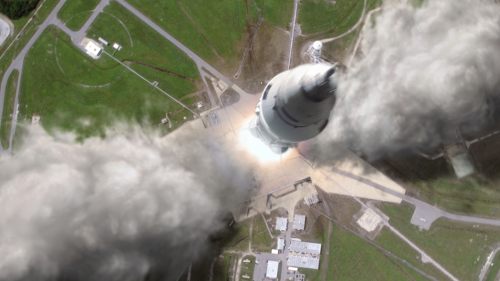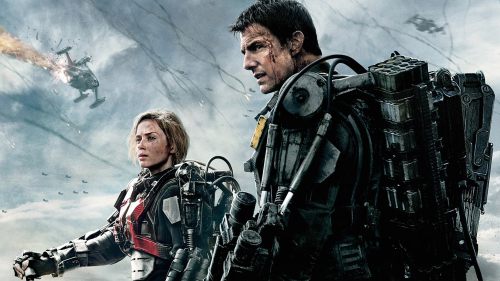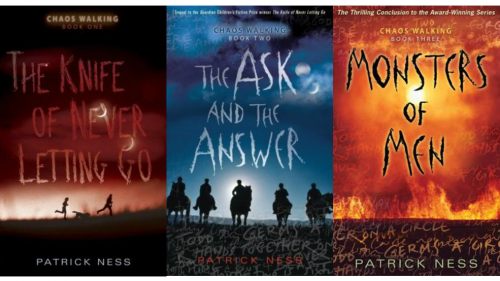THE WALL Review: Doug Liman Misses His Shot
To Americans thirsty for another sandy, sweaty war film where ambiguity is promised but not delivered on, I say drink up, friends. The Wall is here.
Director Doug Liman and screenwriter Dwain Worrell have crafted a film that swears it’s about missed communication, moral quandaries, and righteous anger, but instead offers up yet another Arab character that’s little more than the shark from Jaws with an accent.
I hope you can find nuance in the face of Aaron Taylor-Johnson throughout the 90 minute run-time of this film, because it’s just about all you see. Worrell, who can claim The Wall as his first produced screenplay, plops audiences into the most basic war-time scenario you can get: two enemy combatants separated by the titular stone structure, with the devastation of combat all around them.
Johnson’s character, Sgt. Isaac, and his commanding officer, Staff Sgt. Matthews (a sadly underused John Cena whose most memorable on-screen moment is an incongruously amusing dance) are responding to a routine distress call when they find themselves pinned down by an unseen sniper who may or may not be a legendary insurgent marksman with an axe to grind against the American occupation of Iraq. Mind games ensue — the kind that only occur in movies. You know what I mean: Character A asks vaguely leading questions, Character B gets weirded out. A then reveals something he or she should not know about B, which makes things even creepier. The repartee continues until one of the characters snaps.
The Wall promises you plenty of snapping, lots of yelling, a healthy helping of blood, and what I like to call “scope porn,” the shots where the filmmakers ask the audience to try to play Where’s Waldo with the various participants in the sniper drama. Is he under the bushes? Is he in the giant mound of exploded trucks? Is he even real or is it in your head, maaaaaaan?
There are attempts to elevate this film above simply being a less complicated version of Joel Schumacher’s 2002 Colin Farrell vehicle Phone Booth — it’s set during a historical event, the Iraqi sniper has a tragic backstory, there are cursory attempts to add ambiguity to the dynamic, etc. — but it’s all relatively fruitless because the hero is concerned only with living and lacks any curiosity about his opponent. His only aim is survival (and to stubbornly keep a secret about his dead former sniping partner) You could say that’s a comment on America’s casual disinterest in the plight of the average Iraqi, but Liman chooses to keep the antagonist a secret, so any socio-political statement is undercut by the filmmaker’s insistence on treating the Iraqi as an almost purely malevolent abstraction. We never see his face or learn his name. In an interview with Liman, he told me that this was highly deliberate. “I couldn’t think of a way to direct any actor that would be scarier than what’s in your imagination,” he said.
That’s one way to look at it. This is a thriller, after all, and a sniper film on top of that. There’s the aforementioned scope porn, plus tense “will they or won’t they” moments, though far less heartwarming than the romantic comedy variety. “Will they or won’t they blow the other guy’s brains out” is more accurate. The issue with The Wall is that the idea of the Iraqi sniper being scary is almost beside the point. American audiences will naturally gravitate to a white, English-speaking movie star struggling to survive harrowing circumstances in a foreign land. Taylor-Johnson does an admirable job dragging us from one nailbiter to another and engenders as much sympathy as any actor can with a role that’s essentially “generic hick soldier.”
Fear is the easiest emotion to drag out of an audience with a movie like this, though. The real challenge is to make us feel something, anything, for the aggrieved Iraqi. Americans have spent 16 years treating Muslims as the spooky other — the single-minded suicide bomber, the mad sniper, the religious zealot. In 2017, a movie that portrays Iraqis as shabbily as the monster in a SyFy Channel original isn’t offensive, it just shows a lack of creativity. The Wall asks nothing more of its audience than to feed from the trough of their prejudices and hopefully not choke on them in process.



